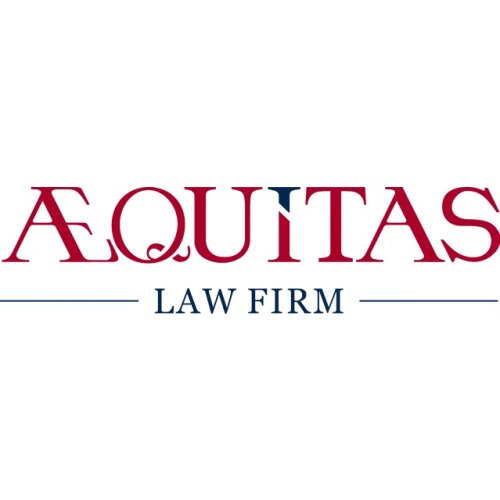Best Tax Lawyers in Kazakhstan
Share your needs with us, get contacted by law firms.
Free. Takes 2 min.
Or refine your search by selecting a city:
List of the best lawyers in Kazakhstan
About Tax Law in Kazakhstan
Kazakhstan's tax system is governed by the Tax Code, which came into effect in 2009 and has undergone several revisions to accommodate the country's changing economic landscape. The primary aim of the tax system is to promote transparency, efficiency, and fairness in tax collection. The main types of taxes in Kazakhstan include corporate income tax, individual income tax, value-added tax (VAT), excise tax, and social tax. Kazakhstan offers various incentives to encourage foreign investment, such as tax exemptions in special economic zones. Understanding these laws is crucial for businesses and individuals to ensure compliance and optimize tax liability.
Why You May Need a Lawyer
There are several scenarios where legal assistance in tax matters can be incredibly beneficial. If you are establishing a business in Kazakhstan, a lawyer can help navigate the complexities of tax registration and ensure that you take advantage of any available tax incentives. For individuals and businesses facing tax audits, legal advice can aid in preparing and presenting documentation and explanations to the tax authorities. Additionally, tax disputes, whether related to assessments or penalties, often require professional legal representation to resolve favorably. Lawyers can also provide essential guidance on cross-border tax issues, mergers, acquisitions, and international tax treaties affecting businesses operating in Kazakhstan.
Local Laws Overview
Kazakhstan's tax laws are detailed within the Tax Code. The corporate income tax rate is set at 20%, with specific provisions for small businesses at lowered rates under certain conditions. The standard VAT rate is 12%, applicable on most goods and services. Personal income tax is imposed at a flat rate of 10%. The government also imposes various duties and taxes on natural resource extraction, which is significant for Kazakhstan's oil-rich economy. Tax incentives are available for mining, oil and gas, and agriculture sectors. The Tax Code includes provisions for tax administration, compliance requirements, and penalties for non-compliance, making it crucial for entities in Kazakhstan to maintain accurate financial records and submit timely tax returns.
Frequently Asked Questions
What is the standard corporate tax rate in Kazakhstan?
The standard corporate income tax rate in Kazakhstan is 20%. However, there are tax benefits for small and medium enterprises under specific criteria.
How does VAT work in Kazakhstan?
The Value-Added Tax (VAT) rate is 12% and is applicable to most goods and services. It is charged on the value added at each stage of production or distribution.
Are there any tax incentives for foreign investors in Kazakhstan?
Yes, Kazakhstan offers various tax incentives for foreign investors, especially within special economic zones, to encourage investment and economic growth.
What is the personal income tax rate for individuals?
The personal income tax rate for individuals in Kazakhstan is a flat rate of 10% on most income types.
Do digital services hosted outside Kazakhstan get taxed?
Yes, non-residents providing digital services to individuals in Kazakhstan are required to register for and pay VAT in the country.
What are the consequences of failing to comply with tax laws?
Non-compliance with tax regulations can lead to severe penalties, fines, and legal action, including prosecution for tax evasion.
How does Kazakhstan tax international transactions?
Kazakhstan adheres to international tax treaties to avoid double taxation and establish taxation rights between countries for cross-border transactions.
Can tax audits be challenged in Kazakhstan?
Yes, taxpayers have the right to challenge tax audit results. Legal assistance can be valuable in preparing documentation and representation in these cases.
What documentation is required for tax audits?
Tax audits typically require comprehensive financial records, including receipts, invoices, bank statements, payroll, and transaction records.
Is Kazakhstan part of any international tax agreements?
Yes, Kazakhstan has signed numerous double taxation agreements (DTAs) with countries worldwide to facilitate international business and prevent double taxation.
Additional Resources
For further assistance, individuals and businesses can refer to the following resources: - The State Revenue Committee of the Ministry of Finance of the Republic of Kazakhstan for official guidance and updates. - Professional tax consulting firms operating within Kazakhstan. - International trade chambers and business associations that can provide insight into Kazakhstan's tax framework.
Next Steps
If you believe you need legal advice regarding tax in Kazakhstan, consider the following steps: 1. Identify specific tax issues or areas where you need clarification. 2. Contact a reputable tax lawyer or consulting firm with expertise in Kazakhstan's tax laws. 3. Gather relevant financial documents and details to provide a comprehensive view of your situation. 4. Schedule a consultation to discuss your case and explore potential solutions or strategies for compliance or dispute resolution.
Lawzana helps you find the best lawyers and law firms in Kazakhstan through a curated and pre-screened list of qualified legal professionals. Our platform offers rankings and detailed profiles of attorneys and law firms, allowing you to compare based on practice areas, including Tax, experience, and client feedback.
Each profile includes a description of the firm's areas of practice, client reviews, team members and partners, year of establishment, spoken languages, office locations, contact information, social media presence, and any published articles or resources. Most firms on our platform speak English and are experienced in both local and international legal matters.
Get a quote from top-rated law firms in Kazakhstan — quickly, securely, and without unnecessary hassle.
Disclaimer:
The information provided on this page is for general informational purposes only and does not constitute legal advice. While we strive to ensure the accuracy and relevance of the content, legal information may change over time, and interpretations of the law can vary. You should always consult with a qualified legal professional for advice specific to your situation.
We disclaim all liability for actions taken or not taken based on the content of this page. If you believe any information is incorrect or outdated, please contact us, and we will review and update it where appropriate.
Browse tax law firms by city in Kazakhstan
Refine your search by selecting a city.












